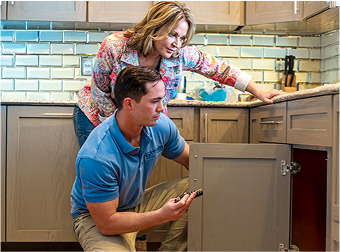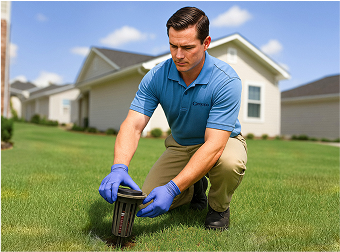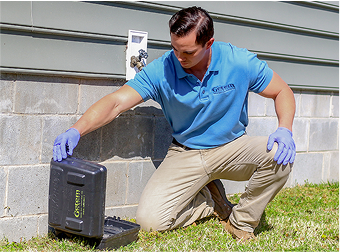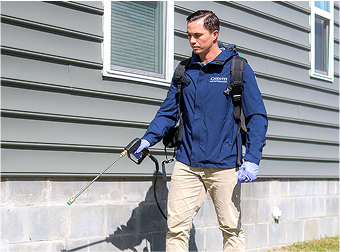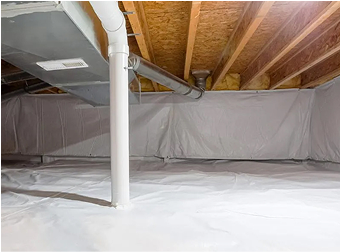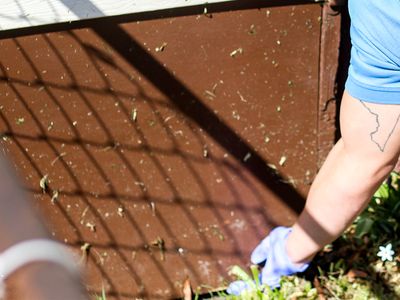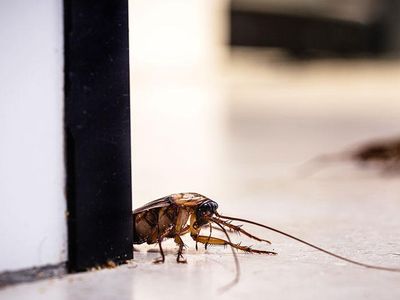How Do You Get Rid Of A Bad Flea Problem?
Fleas are annoying pests. What’s more, flea problems can get out of control rather quickly thanks to their rapid reproduction rates and resilience, as well as environmental factors that promote flea activity. Whether you're dealing with a small infestation or engaged in an epic battle with fleas, a few simple facts can help you get on top of your summer flea problems. Let's take a look!

Flea 101
Fleas are tiny insects that jump through the air and feed on blood. Although they prefer the blood of dogs and cats, they can also bite humans for a blood meal. Fleas are common pests, but what many people don't know is that they don't start as jumping insects. Fleas begin their lives as worm-like larvae. These larvae cannot bite but feed on organic debris and adult flea feces. They encase themselves in cocoons as they move from the larval to the pupal stage. When they emerge as adult fleas, they are ready to find a host and start the cycle again.
Unfortunately, fleas can be harmful to pets and people. Their bites cause itching and discomfort, and some individuals may develop allergic reactions. In severe cases, heavy flea infestations can cause anemia in pets due to significant blood loss.
Fleas also transmit diseases like the plague and murine typhus to humans and can carry tapeworms, which infect pets and sometimes humans.
Additionally, scratching flea bites can lead to open sores and secondary infections.
How do flea problems get out of hand so quickly?
Flea problems can get out of hand fast because these tiny pests reproduce like crazy, with one female flea laying up to 50 eggs daily! What’s more, they hide their eggs and larvae in hard-to-spot places like carpets and pet bedding, and their life cycle includes stages that can lie dormant for months, ready to cause trouble later. Plus, warm, humid conditions, like those found in Hampton Roads, provide the perfect environment for fleas to thrive, especially with pets bringing them in from outside. Incomplete treatments and their knack for developing insecticide resistance can also make them tough to beat. With all that in mind, it's easy to see how an infestation can quickly spiral out of control.
Where to look for fleas in your home
Fleas usually exist where dogs, cats, or people sit or sleep. When searching for fleas, look for the fecal matter of adult fleas. This is called flea dirt and looks like sprinkled pepper. It is a clear warning sign that fleas are reproducing in the area. So, even if you don't see adult fleas springing around, you can zero in on the location of your flea problem. Check pet beds, human beds, and furniture first. You'll also want to use a flea comb to routinely check your pets for flea dirt or adult fleas.
What to do about flea infestations
First, we recommend consulting a veterinarian to find the best solution for your pet and your family. Treating only your property and not your pets invites these biting pests back.
If fleas have infested your yard and entered your home, contact Getem Services for professional flea control in Chesapeake, Virginia Beach, and Hampton Roads.
Fleas are covered under our quarterly pest control service plan, which provides homeowners with year-round protection against a host of bugs and rodents that infest homes and yards in our region. You can rely on our experience and expertise to eliminate fleas and other pests; our family has been in the business since 1922!
Flea prevention tips
In addition to our ongoing protection, we recommend making your property less appealing to fleas and other pests. Try implementing the following flea prevention tips:
- Make sure your pets stay up to date on flea treatments.
- Reduce moisture near your home by cleaning the gutters.
- Address moisture problems in your crawl space.
- Trim vegetation next to your home to reduce humidity.
- Keep grass cut and remove weeds to eliminate flea-hiding spots.
- Remove yard debris from your property.
- Keep trash cans covered and as clean as possible to avoid attracting rodents and other wildlife that carry fleas.
- Remove bird feeders or relocate your feeders to zones away from your home to avoid having mice, rats, squirrels, and other wild animals drop fleas near your home.


I would definitely use Getem again and recommend their services.

